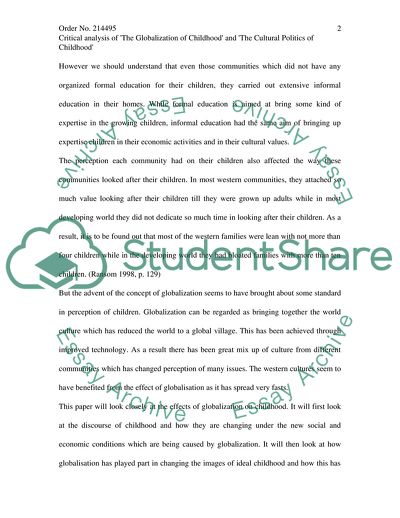Cite this document
(The Globalisation of Childhood and the Cultural Politics of Childhood Coursework, n.d.)
The Globalisation of Childhood and the Cultural Politics of Childhood Coursework. https://studentshare.org/culture/1712870-critical-analysis-of-the-globalisation-of-childhood-and-the-cultural-politics-of-childhood
The Globalisation of Childhood and the Cultural Politics of Childhood Coursework. https://studentshare.org/culture/1712870-critical-analysis-of-the-globalisation-of-childhood-and-the-cultural-politics-of-childhood
(The Globalisation of Childhood and the Cultural Politics of Childhood Coursework)
The Globalisation of Childhood and the Cultural Politics of Childhood Coursework. https://studentshare.org/culture/1712870-critical-analysis-of-the-globalisation-of-childhood-and-the-cultural-politics-of-childhood.
The Globalisation of Childhood and the Cultural Politics of Childhood Coursework. https://studentshare.org/culture/1712870-critical-analysis-of-the-globalisation-of-childhood-and-the-cultural-politics-of-childhood.
“The Globalisation of Childhood and the Cultural Politics of Childhood Coursework”. https://studentshare.org/culture/1712870-critical-analysis-of-the-globalisation-of-childhood-and-the-cultural-politics-of-childhood.


